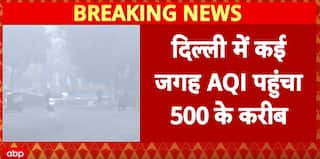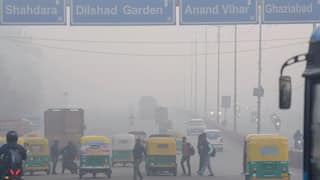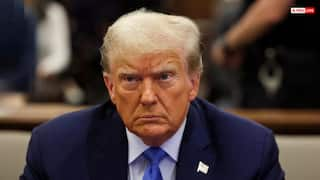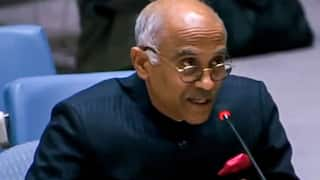Look Back 2023: How Ongoing Conflicts In Israel & Ukraine Impacted Global And Indian Economies
Year ender 2023: These regional crises have far-reaching implications, impacting trade, energy markets, investor confidence, and geopolitical stability

The persistent conflicts in Israel and Ukraine continue to cast a shadow over the global economic landscape, with reverberations being felt in various sectors, including India's economy. These regional crises have far-reaching implications, impacting trade, energy markets, investor confidence, and geopolitical stability.
Impact on Global Economy
Energy Markets:
The tensions in Ukraine, a key transit route for Russian natural gas to Europe, have raised concerns about energy supply disruptions. Any escalation in the conflict could potentially disrupt gas flows, causing volatility in global energy markets and exerting upward pressure on prices. This scenario could spell trouble for economies heavily reliant on energy imports, leading to increased inflation and reduced consumer spending. The global economy already faces an oil market deficit as Saudi Arabia and Russia, the major oil producers, announced supply cuts of a combined 1.3 million barrels per day (mbpd) till the end of 2023. Currently, the oil prices are hovering above the $90 per barrel-mark. Any further escalation of the conflict will require careful monitoring, especially given the global economy's 'higher for longer' interest rate scenario.
Global Trade:
The instability in the Middle East, particularly in Israel, poses risks to global trade due to the region's significance as a trade route. Heightened geopolitical tensions often result in increased shipping costs, supply chain disruptions, and decreased investor confidence, negatively impacting global trade volumes and economic growth.
Investor Confidence:
Uncertainty stemming from these conflicts affects investor sentiment worldwide. Geopolitical turmoil tends to trigger risk aversion among investors, leading to capital flight from affected regions and causing fluctuations in financial markets. This volatility can affect investment decisions, hindering economic growth prospects globally.
Impact on Indian Economy
Energy Prices:
India, a major importer of oil and natural gas, remains vulnerable to energy price fluctuations. Any disruption in energy supply from the Middle East or Russia due to escalations in these conflicts could significantly impact India's import bill, leading to higher inflation and increased fiscal pressure.
Between April and September 2023, about 44 per cent of Indian oil imports were from West Asia, according to Reuters’ data. In October, the World Bank’s latest India Development Update (IDU) said it forecast India’s growth rate in fiscal year 2023-24 to come in at a strong 6.3 per cent, which was down from the previous 7.2 per cent amid “intensifying global headwinds”.
In the next financial year (2024-25), the Reserve Bank of India (RBI) has pegged crude prices at $85 a barrel, and an exchange rate of 82.5 rupees against the US dollar. According to the RBI forecast, “A 10 per cent jump in oil prices can make inflation soar by about 30 basis points and impact growth by about 15 basis points."
Trade Routes and Costs:
India's trade could face challenges because of potential disruptions in key shipping lanes passing through affected regions. Increased shipping costs and delays in the transportation of goods could affect the country's exports and imports, impacting its balance of trade and economic growth.
Investor Sentiment and Markets:
The uncertainties caused by conflicts abroad affect investor sentiment in India's financial markets. Fluctuations in global markets and capital outflows can lead to volatility in domestic markets, impacting stock prices, currency valuation, and overall investment climate.
The ongoing conflicts in Israel and Ukraine are not isolated events; their repercussions extend beyond the regions directly involved. The interconnectedness of the global economy means that disturbances in one part of the world can have far-reaching consequences. As these conflicts persist, governments and policymakers globally, including in India, must navigate these challenges and adopt measures to mitigate the potential economic fallout. Addressing these conflicts diplomatically and finding peaceful resolutions is crucial not just for the stability of the regions involved but also for safeguarding the global economy from further disruptions and fostering sustainable economic growth around the globe.






































